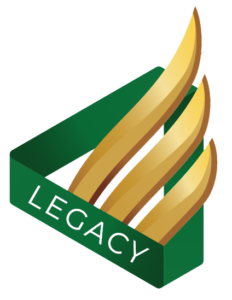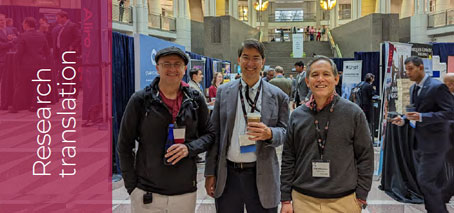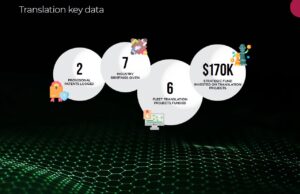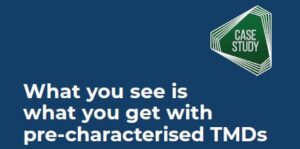
This is an extract from the 2022 FLEET annual report [read the full report online] See previous section (Equity in 2022) / see next (Innovation)
With a goal to help transform Australia’s electronic technologies and work towards research translation outcomes, FLEET is actively building partnerships and links with research and industry organisations working on novel electronic devices and systems.
ENGAGING WITH INDUSTRY
Progress towards this important goal in 2022 included:
-
Initiating the FLEET Translation Program (see below), with $171,000 funding for six projects approved
- Lodging two provisional patents
- Delivering technical briefings to seven industry organisations
- Increasing engagement with the Australian semiconductor community, and briefing the government on Australian critical technologies
- Training FLEET members on research translation, intellectual property and the commercialisation ecosystem
- Exploring internship opportunities with industry collaborators and partner organisations.
IN 2023 FLEET WILL…
- Run an industry symposium matching the challenges faced by industry representatives to possible FLEET solutions
- Continue the FLEET Translation Program, exploring alternative revenue sources to co-fund FLEET translation projects in the pipeline
- Host the inaugural workshop on Future Electronic Materials Research in Australia (FEMRA)
- Run a training workshop for senior researchers on having an input into government policy.
FLEET will:
 Translate FLEET science to industry
Translate FLEET science to industry- Ensure the FLEET research mission continues beyond the current Centre of Excellence’s funding cycle (see FLEET.org.au/strategic-plan p21)
- Ensure Australia’s next generation of science leaders are prepared for a wide range of future careers, including industry
- Establish strong, lasting links between Australian and international science communities.
PATENTS
FLEET is committed to boosting the Australian R&D sector and making opportunities to create high-value intellectual property (IP) for transforming electronic technologies by focusing on developing advanced structures that will offer dissipationless electronics.
Two new provisional patents were lodged in 2022:
- Electrolytes and electrolyte additives for aqueous rechargeable zinc batteries
- Improved method of synthesising nanodroplets for catalysts.
FLEET’s mission is to enable continuing growth of computing without that growth being throttled by the availability and costs of energy. We aim to do this by developing a new transistor that can switch at lower energy. Along the way, we are creating new IP on material fabrication, processes and theory/modelling methods.
Intellectual property created within FLEET for suites of important quantum materials will serve as the basis for establishing spin-off companies.
JUMP-STARTING THE ELECTRONIC MATERIALS COMMUNITY
FLEET’s activity and success over five years have galvanised the Australian electronic materials research community.
This opens new windows of opportunities for further scientific advancement of FLEET’s discoveries, commercial development of IP created to date, and new research programs stemming from capacity and relationships built up through FLEET’s funding period.
In 2023 FLEET will host a future electronic materials research symposium, looking at pathways for Australia’s research community to build capacity, networks and funding support addressing ‘grand challenges’ in electronics materials.
FLEET Translation Program: shepherding scientific discovery towards commercialisation
With a goal to help transform Australia’s electronic technologies and work towards research translation outcomes, FLEET is actively building partnerships and links with research and industry organisations working on novel electronic devices and systems.
Program Manager Dr Michael Harvey joined FLEET in 2022 to guide members through the process of identifying promising projects for translation to industry and shepherd them through the process of establishing linkages.
In its first year the program funded six projects.
The program focuses on members, and success is seen in FLEET members trained in translation skills, or getting exposure to the process, as well as translation outcomes delivered.
In addition to meeting members from all seven nodes to identify projects ready for translation, and establishing a rolling call for proposals, Michael also established new training programs in 2022, significantly boosting members’ training in translation and commercialisation.



